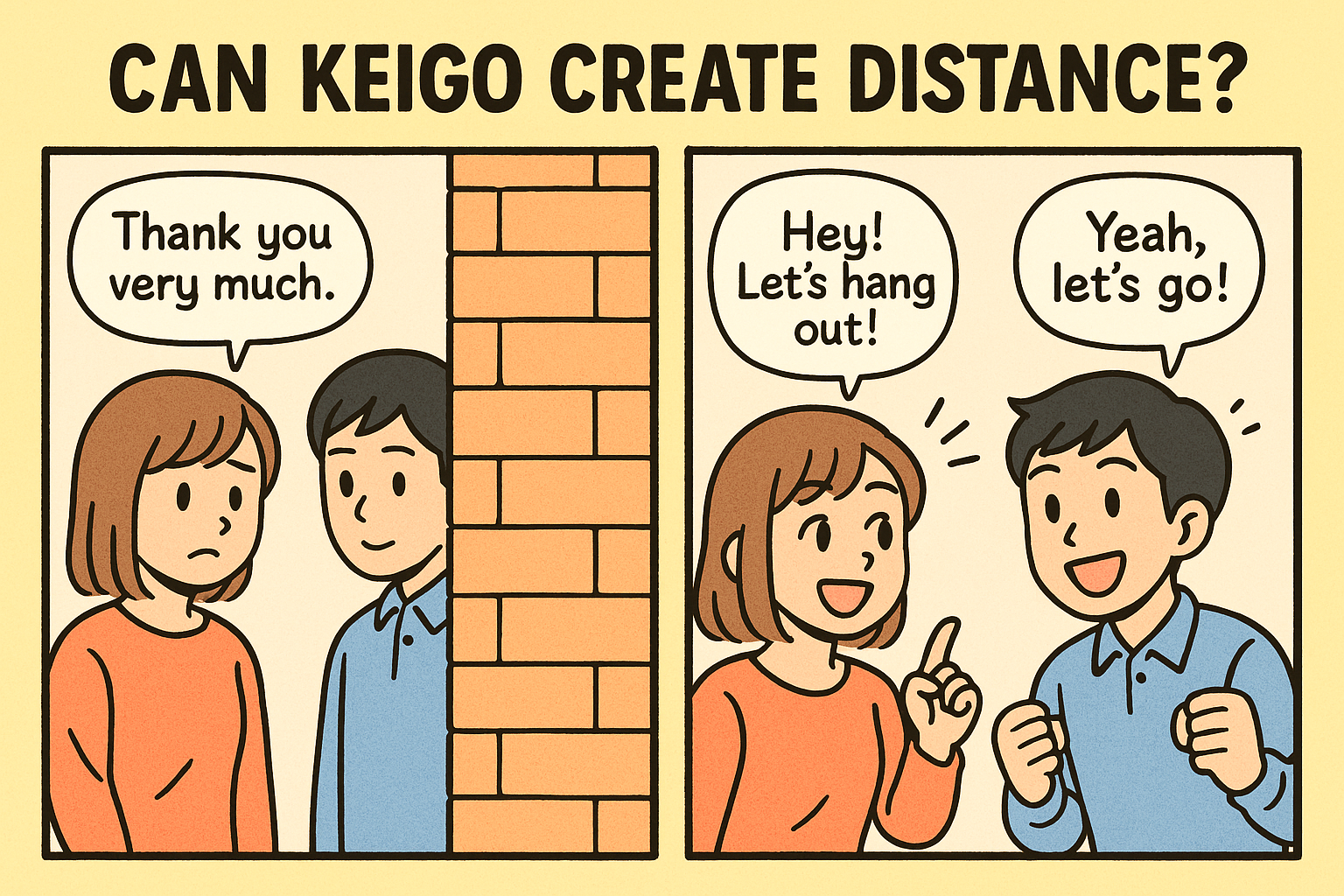
はじめに / Introduction
日本語を学ぶ人の多くは「敬語=丁寧で良いもの」と考えがちですが、実は敬語にはもう一つの側面があります。
丁寧に話すことで、時には相手との距離を感じさせてしまうこともあるのです。
Many people learning Japanese think that keigo (polite language) is always positive and respectful. However, keigo can also have another side: sometimes, speaking too politely can make people feel distant or formal.
友達との敬語は「よそよそしい」? / Keigo Can Feel Unfriendly Between Friends
たとえば、友達同士なのに「ご苦労様です」や「〜でございます」を使うと、不自然に感じられたり、「よそよそしい」と思われることがあります。
For example, if you use phrases like "gokurousama desu" or "~de gozaimasu" with your friends, it might feel unnatural or even cold. Your friends might think you are being too formal or "distant."
敬語で距離を調整する / Adjusting Distance with Keigo
日本語では、相手との関係によって言葉づかいを変えるのが自然です。
敬語を使うことで「距離」を示すこともでき、逆に親しい関係ではあえて敬語を使わないことで「仲の良さ」を表現します。
In Japanese, it’s natural to adjust your language depending on your relationship with the other person. Using keigo can signal social distance, while switching to casual language can show closeness and friendliness.
場面によっては敬語がマナー違反? / Sometimes Keigo Can Be Rude!
親しい人や家族に丁寧すぎる敬語を使うと、「距離を置かれている」「壁を作っている」と感じさせることがあります。
日本語では、相手との距離感を意識して言葉を選ぶことが大切です。
If you use overly polite language with close friends or family, they might feel you are putting up a wall or keeping them at a distance. In Japanese, choosing the right level of politeness is important for building good relationships.
まとめ / Conclusion
敬語はとても大切な日本語の文化ですが、使い方を間違えると相手との距離を感じさせることもあります。
相手との関係や場面に合わせて、敬語とカジュアルな言葉を使い分けることが自然なコミュニケーションのコツです。
Keigo is an important part of Japanese culture, but using it incorrectly can create distance. For natural communication, try to adjust your language according to your relationship and the situation.